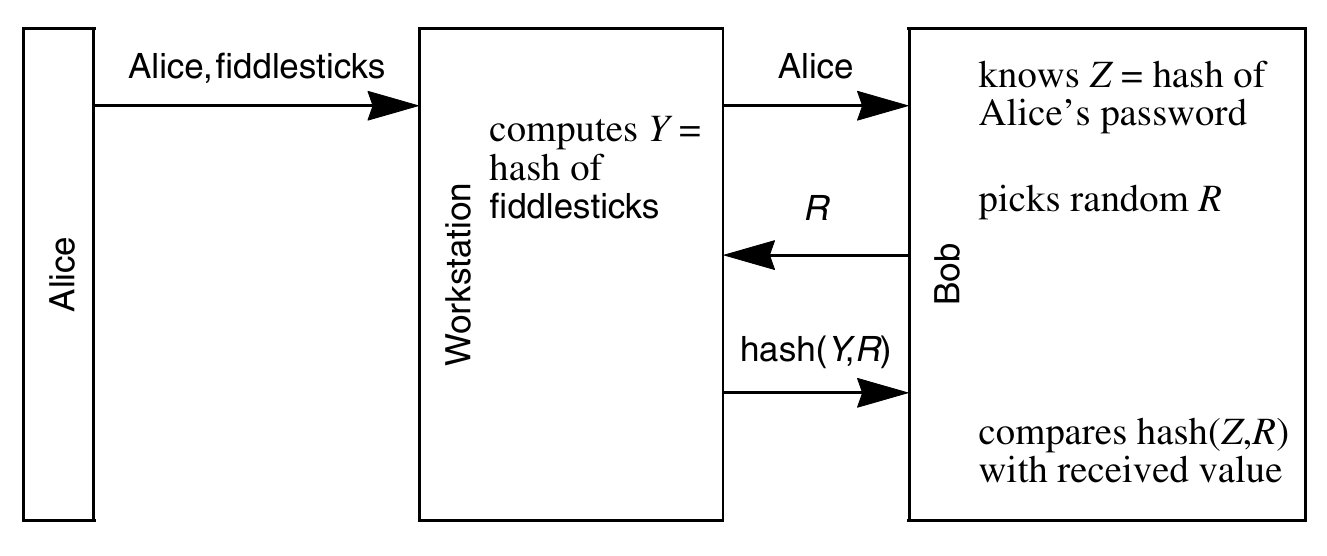Consider the following protocol from the book "Network Security: Private Communication in a Public World" by Kaufman et al.
Alice knows a password. Bob, a server that will authenticate Alice, stores a hash of Alice’s password. Alice types her password (say fiddlesticks) to her workstation. The following exchange takes place:
This protocol appears to be secure against both eavesdropping (exchanging hash values of random number and password-hash) and server database disclosure (stores only hash value of password). But, my professor says that password based authentication can only be resilient to either one of these but not both. Therefore, can someone point out why this protocol is not secure against both?

